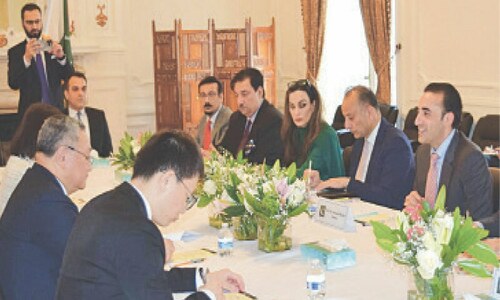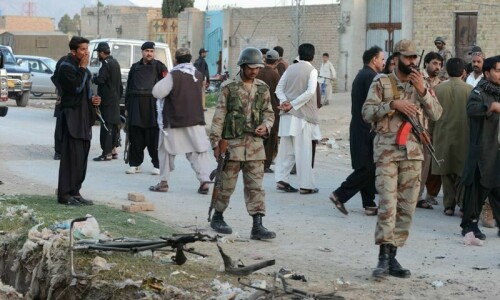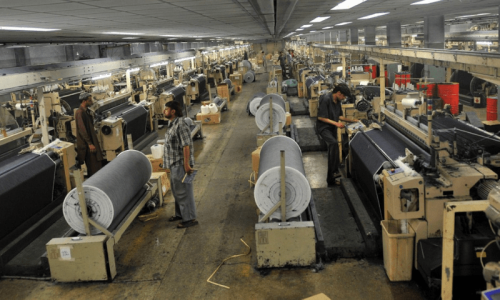PESHAWAR: The Peshawar High Court (PHC) on Wednesday stopped the oath-taking of nine women MNAs-elect who were awarded the National Assembly reserved seats claimed by the Sunni Ittehad Council (SIC) until today (Thursday).
The order was issued on a petition filed by the SIC — which was joined by PTI-backed independents who won the elections without a unified electoral symbol — challenging the Election Commission of Pakistan’s (ECP) decision to deny the party reserved seat for women and minorities seats.
A two-member PHC bench consisting of Justice Ishtiaq Ibrahim and Justice Shakeel Ahmad issued the order after a preliminary hearing. In its petition, the Sunni Ittehad Council contested the ECP’s March 1 decision, which rejected their request for seats reserved for women and non-Muslims, allocating them instead to other political entities.
The judges have refereed the petition to the PHC chief justice and called upon him to form a larger bench to deliberate on the “intricate” constitutional questions involved in the matter.
Judges seek larger bench to deliberate on ‘intricate’ constitutional questions involved in the matter
The bench has asked the attorney general for Pakistan and Khyber Pakhtunkhwa’s advocate general to assist the court in the matter.
On the petitioner’s plea seeking interim relief, the bench issued notice to the ECP for today (Thursday) and directed that until then, the National Assembly speaker should not administer the oath to the respondents, including eight MNAs-elect from KP and one from Punjab.
The petition was filed by the SIC through its chairman, Sahibzada Muhammad Hamid Raza, seeking directives of the court for the ECP to allocate the reserved seats to the council based on their strength in the National and provincial assemblies.
The ECP had earlier denied the council’s request, citing a failure to comply with procedural requirements for listing party candidates for these seats.
The PHC’s Wednesday judgement, seen by Dawn, listed six questions that needed to be determined by the court:
(1) “Whether the court has the jurisdiction to adjudicate on the matter or not? (2) Whether the petitioner has locus standi to file the petition? (3) Whether the petitioner is entitled to claim the quota for reserved seats for women and non-Muslims in view of the Constitution, Elections Act and Elections Rules? and, (4) Whether the defect of non-submission of lists for reserved seats is not curable under the law?”
The other two questions to be determined by the court are: (5) “Whether the seats for women and non-Muslims in the National Assembly can be kept vacant or are liable to be allocated by proportional representation process on the basis of seats won by political parties?” and, (6) “Whether the ECP has misconceived and misinterpreted the provision of the Constitution, Elections Act and Elections Rules?”
During Wednesday’s hearing, senior lawyers Qazi Muhammad Anwar and Rehmat Ali Shah contended that the seats reserved for women and non-Muslims in the National Assembly had been allocated in violation of Article 51(6) of the Constitution read with Section 104 of the Elections Act, 2017, and Rules 92 and 94 of the Elections Rules, 2017.
Qazi Anwar pointed out that within three days of the notification of the returned candidates, the independent MNAs and MPAs backed by the PTI had joined the petitioner’s party, the SIC, including 86 MNAs, 107 MPAs of the Punjab Assembly, 90 of the KP Assembly and nine of the Sindh Assembly.
He argued that based on these MNAs and MPAs joining the SIC, it should have been allocated the reserved seats.
He contended that the Constitution didn’t impose any restriction that a political party entitled to a reserved seat must have given a priority list of candidates for the reserved seat before independent candidates joined the party.
Published in Dawn, March 7th, 2024
















































